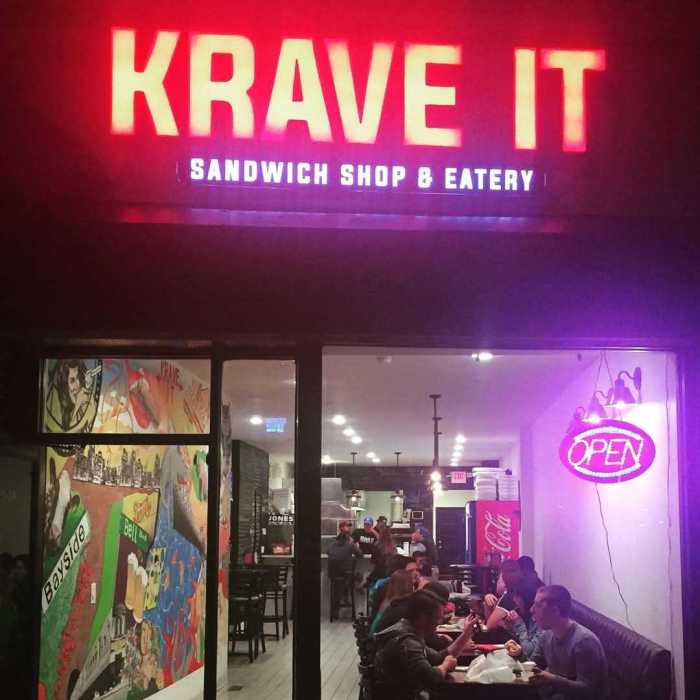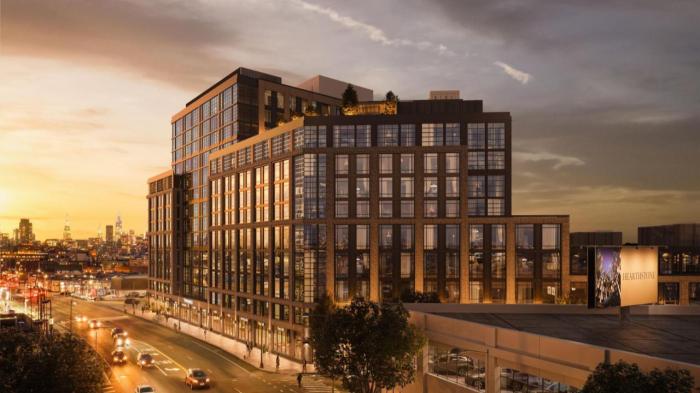Catholic Charities Progress of Peoples Development Corporation, the affordable housing affiliate of Catholic Charities Brooklyn and Queens Inc., is constructing 102 units of affordable housing for low-income seniors and formerly homeless adults with supportive services in Astoria.
Construction began in June on the new six-story, 84,900 square-foot Bishop Valero Residence. The $62 million development will be built on the former parking lot of the current Catholic Charities Catherine Sheridan Senior Housing, which is located at 23-11 31st Road.
“We are pleased to begin the construction of the Bishop Valero Residence,” said Monsignor Alfred LoPinto, chief executive officer, of Catholic Charities Brooklyn and Queens. “Affordable housing is one of the biggest crises facing New York City. As one of the largest faith-based developers of affordable housing in the country, we understand how true this statement is. This project will provide much needed housing to low-income seniors and a supportive environment for formerly homeless, and allow the residents to live safely, comfortably and independently for as long as possible. There are thousands of individuals in need of affordable housing in New York City, and we cannot build fast enough.”
Bishop Valero Residence’s closing was initially scheduled in March 2020, but when the pandemic hit, the deal was thrown in flux, along with nearly all aspects of New York City life. However, emphasizing the specific need for a project such as Bishop Valero Apartments, and utilizing the expertise of a strong financial and legal team, the deal was able to move forward, the charity said.
The development features a 6,400 square-foot, 200-seat capacity community senior center on the ground floor of the building provided and operated by Catholic Charities Neighborhood Services, an affiliate agency of Catholic Charities Brooklyn and Queens.
With 102 residential units and one superintendent’s unit, the building will be a 100 percent affordable residence for seniors with 30 percent of the building reserved for formerly homeless seniors with severe mental illness (SMI) through the New York City 15/15 Supportive Housing Initiative sponsored by the Department of Homeless Services in the Human Resources Administration.
The remainder of the units reserved for low-income seniors will target those making up to 60 percent of the Area Median Income (AMI). About 100 percent of resident units are supported with rental operating subsidy through the HUD Section 8 Project-Based Voucher program, as administered by the New York City Housing Authority.
The programming for the Peter J. Dellamonica Senior Center, which Catholic Charities currently operates in the Astoria community will relocate to the Bishop Valero Residence. It will include daily hot meals made on-site, educational forums, fitness classes, and senior case management and referral services.

The Bishop Valero Residence is financed with a $3.1 million annual allocation of 9 percent Low-Income Housing Tax Credits (LIHTC) from the New York City Department of Housing Preservation and Development (HPD), which leverages $30.8 million in tax credit equity over 15 years.
Louis Carroll, HPD commissioner, said they’re advancing the projects to best meet the urgency of the moment by serving the most vulnerable New Yorkers amid the COVID-19 pandemic.
“Projects like the Bishop Valero Residence that will bring affordable homes to seniors, homeless seniors and provide services to the city’s most at-risk adults, will help New York City emerge from the crisis stronger,” Carroll said.
Bank of America will provide construction lending, Richman Housing Resources will syndicate tax credits, and Barings will provide permanent debt for the project over the next 30 years.
Kevin Hoffman, president of Richman Housing Resources LLC, said they’re honored to be working with CCPOP, a long-standing New York City nonprofit dedicated to transforming communities and providing housing opportunities for those who need it the most.
“Bishop Valero Residence is a great example of how public-private partnerships, using federal low-income housing tax credit programs and HUD rental subsidy vouchers, can create affordable housing for low-income seniors and the formerly homeless,” said Hoffman.
Erin Galligan, senior vice president of Community Development Banking at Bank of America, said they’re pleased to help create much-needed affordable housing for seniors and formerly homeless veterans in Astoria.
“Bishop Valero Residence is a great example of the impact we can make to help the most vulnerable in our communities and our continued commitment to support the communities where we work and live,” Galligan said.
In 2016, Catholic Charities joined a coalition with LiveOn NY that heavily advocated for changes to the New York City zoning resolution.
Approved by the New York City Council, the changes, called Zoning for Quality and Affordability (ZQA), included allowing buildings with affordable or senior housing to be taller, eliminating parking requirements for affordable or affordable senior housing located near subway lines, and changing rules which affect the shape of new and enlarged buildings.
This new ZQA regulation allows Catholic Charities to build crucial affordable housing units on underutilized parking lots within the existing Catholic Charities’ housing portfolio.
Astorian native Councilman Costa Constantinides said he was proud to work closely with CCBQ to ensure that they received the maximum amount of affordability on the site that replaced an underutilized parking lot.
“More than ever, Western Queens is in need of quality senior affordable housing,” Constantinides said. “We lead the City in seniors awaiting appropriate housing that matches their financial means. They deserve to remain in the neighborhoods where they built a family and retired with dignity.”



































